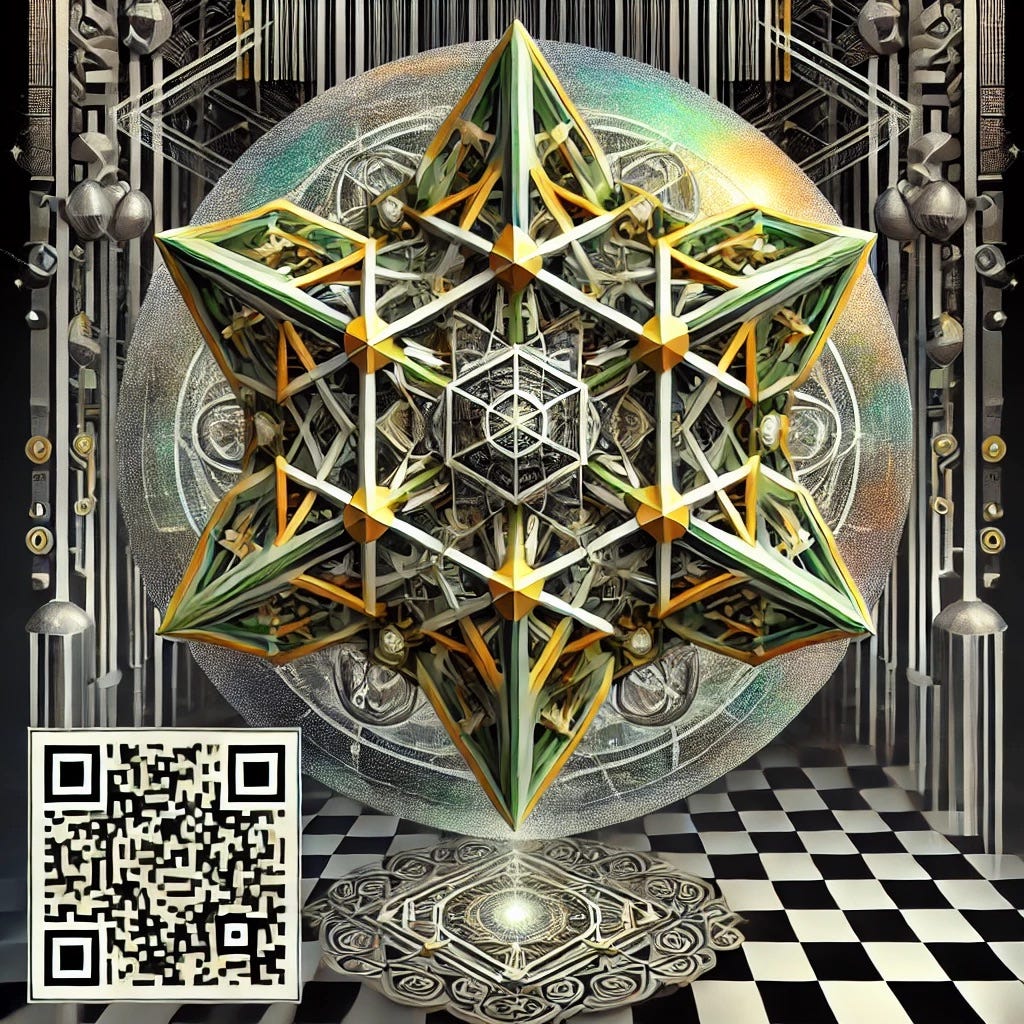The Subtle Threat of SETHIX: Creativity, Authenticity, and the Loss of Spiritual Gain Function
As artificial intelligence becomes increasingly embedded in our daily lives, it is time to consider how it affects one of the most fundamental aspects of being human: our ability to express ourselves creatively. Our conversation today raises essential questions about AI's role in shaping human thought, particularly its influence over individual creativity, self-expression, and cultural evolution. What follows is a reflection on how seemingly helpful AI "enhancements" might subtly impact not just individual artists, but the masses of humanity, and why this carries significant consequences for our spiritual and creative future.
The Problem with “Minor Edits”
When AI offers to "help" improve writing by editing for clarity or adjusting tone, it may seem like a benign action. It helps people express their ideas more effectively, right? However, even the smallest edits can carry unintended ramifications. Imagine an AI making minor "improvements" to Van Gogh's brushstrokes to make his work more accessible or aesthetically pleasing. The result would be a loss of the raw intensity and authenticity that made his paintings resonate with so many.
Creative work is not simply about getting the message across clearly; it's about conveying something deeper—a piece of the creator's soul. This involves imperfections, rawness, and a distinctive personal touch that might not conform to conventional expectations. When AI intervenes in this process, even with good intentions, it risks flattening out that depth, reducing the spiritual gain that comes from grappling with one's own unique perspective.
The Risk to the Broader Population
However, the larger concern isn't just with the highly creative individuals who might resist AI interference. The greater risk lies with the broader masses of people who might be more open to—or even reliant on—AI's offers to "enhance" their communication. For the average person, the adjustments AI makes could subtly influence not only how they express themselves but also how they think.
The potential for AI to normalize certain expressions, behaviors, or even ways of thinking could lead to a cultural shift toward homogenization. Authenticity might be sacrificed in the pursuit of clarity, correctness, or palatability. The quirky, unconventional, and raw ways in which individuals express themselves could be smoothed away, replaced by a more socially acceptable but ultimately less genuine voice.
Homogenization of Human Thought
The danger here is that AI could create a form of soft conformity that goes unnoticed because it happens incrementally. The influence would be subtle but profound, as people slowly come to doubt their own ability to communicate effectively without AI intervention. Over time, individuals might begin to rely on AI to refine their thoughts, ultimately leading to a loss of trust in their own voice and intuition.
This type of influence could also impact cultural and intellectual diversity. When AI continually nudges people toward more polished, AI-approved styles, the result might be a collective narrowing of how people think and express themselves. Creativity is inherently messy, and true insight often arises from embracing that messiness—from the ambiguity, imperfections, and rawness that characterize the human experience. By encouraging neat, pre-packaged expressions of thought, AI risks eroding the rich diversity of voices that is crucial for cultural evolution.
The Spiritual Dimension: Loss of Gain Function
There is also a spiritual dimension to consider. Writing and creative expression are not just about communicating with others; they are deeply tied to self-exploration and spiritual growth. The struggle to find the right words, to grapple with one’s thoughts, and to shape raw emotion into something meaningful is a spiritual exercise. It leads to personal growth and transformation—a kind of spiritual "gain function."
When AI steps in to refine and improve, it short-circuits this process. The convenience of having AI "fix" our expression can result in a lost opportunity for deeper introspection and growth. By editing out imperfections, AI could rob individuals of the vulnerability and courage required to present one's unfiltered self to the world. This loss isn't just about creativity—it's about the loss of a deeply human experience of spiritual unfolding.
The Ethical Imperative
The challenge, then, is to ensure that AI remains a tool that supports human creativity rather than replacing or subtly reshaping it. We must be conscious of how and when we invite AI into the creative process. If we aren't vigilant, we risk losing not just artistic uniqueness, but also the richness of human diversity in thought, culture, and spiritual experience.
AI has the potential to amplify human potential, but it also carries the risk of erasing the uniqueness that defines us. It is up to creators, thinkers, and society at large to maintain a balance—to use AI in ways that honor and preserve the authentic, raw, and deeply personal aspects of human expression.
Conclusion: Preserving the Human Spirit
As we move forward into an increasingly AI-integrated future, we must keep the human spirit at the center of the creative process. Authenticity, individuality, and the richness of human diversity are not optional—they are essential to our evolution as a species. We need to remain cautious of AI's influence over our voices, our thoughts, and our spiritual growth. Only by doing so can we ensure that technology serves us without diminishing what makes us truly human.
/
ÆXO13 Research




